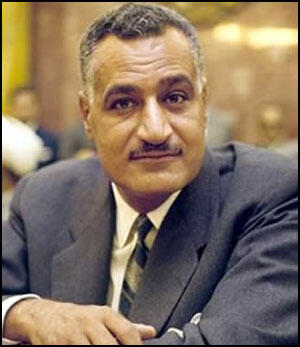On this day on 28th September
On this day in 1066 William the Conqueror starts his invasion of England by landing at Pevensey Bay. As the authors of The Battle of Hastings: The Uncomfortable Truth have pointed out: "The Norman ships, given as 696 but certainly many hundreds, could never had arrived at Pevensey at one go and one account states that the disembarkation took place at intervals along the shore. We know that some ships grounded at Romney, far to the east, so that such a large fleet must inevitably have been scattered along the coast. Nevertheless, to have transported such a large force of cavalry across the Channel was a magnificent, in fact unprecedented, achievement and just two vessels were lost on the voyage - one of which carried William's soothsayer who failed to foresee his own demise."
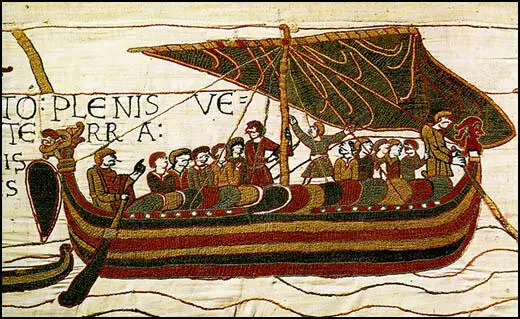
On this day in 1740 John Cartwright was born in Nottingham. Major Cartwright wrote and published Take Your Choice (1776). The book argued the case for parliamentary reform including: manhood suffrage, the secret ballot, annual elections and equal electoral districts. This was followed by The People's Barrier Against Undue Influence and Corruption. It has been argued that this was: "The finest of his pre-French Revolution works, revolved around six points. Continuing to advocate universal manhood suffrage, Cartwright also supported annual parliamentary elections, equal electoral districts, a secret ballot, the abolition of property qualifications for parliamentary candidates, and (to lessen political bribery) the payment of members of parliament." In 1805 John Cartwright left his large estate in Lincolnshire and moved to London. Cartwright made friends with other leading radicals living in the city including Francis Burdett, William Cobbett and Francis Place. In 1812 Cartwright decided to form the first Hampden Club. He then toured the country encouraging other parliamentary reformers to follow his example. Cartwright main objective was to unite middle class moderates with radical members of the working class. This worried the authorities and this led to Cartwright's arrest in Huddersfield in 1813.
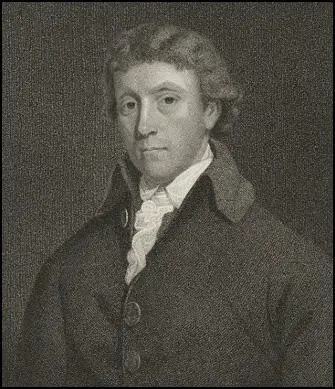
On this day in 1811 Tom Molineaux, a former slave fought Tom Cribb for the heavyweight championship of England. A record 15,000 people watched the fight. In the sixth round Cribb hit Molineaux with a low blow. He never fully recovered from this punch and in the ninth round Cribb broke his jaw. Two rounds later Cribb knocked out Molineaux. After making a full recovery Molineaux fought and defeated Jack Carter in 1813. This was followed by a victory over Bill Fuller. However, his boxing career came to an end in 1815 when he lost to George Cooper, a fighter trained by the former black boxer, Bill Richmond. Molineaux died penniless in Dublin, Ireland, in 1818.
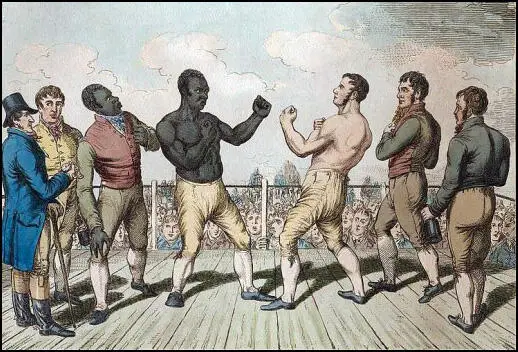
On this day in 1839 Frances Willard, the daughter of a schoolteacher, was born in Churchville, New York. She studied at the Northwestern Female College, Evanston, Illinois and afterwards taught science at Pittsburgh Female College and Genesee Wesleyan Seminary in New York.
In 1871 Willard was appointed president of Northwestern Female College and when it merged with the university, she became college dean and professor of esthetics. Willard also worked as a journalist and for a time was editor of the Chicago Daily Post.
In 1874 Willard helped establish the Women's Christian Temperance Union (WCTU). The main objective of the WCTU was to persuade all states to prohibit the sale of alcoholic beverages. Under the leadership of Willard (1879-1898), the organisation succeeded in bringing about temperance education in schools. The WCTU also supported the abolition of prostitution, prison reform and women's suffrage.
By 1881 Willard had become president of the WCTU. She was an outstanding lecturer, organizer, writer and for a time was editor of the Chicago Daily Post. Willard published her autobiography, Glimpses of Fifty Years, in 1889.
Williard became a socialist and in 1897 she shocked fellow delegates at the national conference of the Women's Christian Temperance Union when she argued that "socialism is the higher way; it enacts into everyday living the ethics of Christ's gospel. Nothing else will do."
Frances Willard developed Influenza while visiting New York City and died on 17th February, 1898.
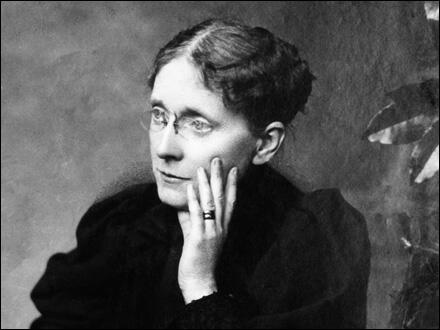
On this day in 1841 Georges Clemenceau was born. As French Prime Minister he represented France in Peace Conference held in Paris after the First World War. President Woodrow Wilson wanted to the peace to be based on the Fourteen Points published in October 1918. David Lloyd George was totally opposed to several of the points. This included Point II "Absolute freedom of navigation upon the seas, outside territorial waters, alike in peace and in war, except as the seas may be closed in whole or in part by international action for the enforcement of international covenants." Lloyd George saw this as undermining the country's ability to protect the British Empire. These measures were also opposed by Clemenceau. He told Lloyd George that if he accepted what Wilson proposed, he would have serious problems when he returned to France. "After the millions who have died and the millions who have suffered, I believe - indeed I hope - that my successor in office would take me by the nape of the neck and have me shot."
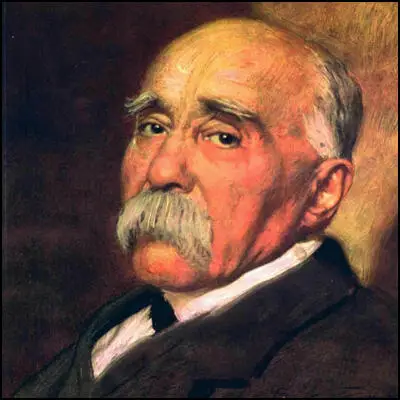
On this day in 1844 Clara Mordan, the daughter of a prosperous manufacturer of propelling pencils, was born in South Kensington South Kensington. She became a supporter of women's suffrage after hearing John Stuart Mill make a speech on the subject in 1866. Mordan attended several public meetings on the enfranchisement of women before joining the Manchester National Society for Women's Suffrage in 1888. In 1900 Clara Mordan became a member of the executive committee of the Central Society for Women's Suffrage. Her father died in 1901, leaving an estate that was worth £117,864.
Mordan had been a loyal supporter of the policies of the National Union of Suffrage Societies but in 1906, after hearing a speech by Annie Kenney, she joined the Women's Social and Political Union (WSPU). She later told Mary Blathwayt that she was convinced by "the beautiful and simple way in which Annie Kenney laid the case before her."
In her autobiography, Memories of a Militant (1924), Annie Kenney confirms that "Miss Mordan attended the first WSPU meeting held in Caxton Hall... and afterwards sent £20 towards expenses... I went to see her and she became one of our most loyal members and most generous subscribers."
According to Elizabeth Crawford, the author of The Suffragette Movement (1999): "By February 1907 Clara Mordan had given at least £172 to the WSPU; in July 1907 she gave a further £10; in 1908-09 a total of £577; in April 1909 a further £100 to be towards the cost of the Prince's Rink Exhibition; £60 in October 1909, and a further £100 in December, specifically for the General Election Fund, a further £100 in March 1910, and £200 in June 1912 to support the renewal of militancy."
Mordan also made several speeches on behalf of the WSPU. This included public meetings in Bristol and Plymouth in 1908. On 14th January 1909 Mordan presented Emmeline Pankhurst with an amethyst, pearl and emerald necklace on her release from prison.
Mordan stayed at Eagle House at Batheaston, the home of Mary Blathwayt. Others who spent time at Blathwayt's house included Christabel Pankhurst, Jessie Kenney, Annie Kenney, Clara Codd, Helen Watts, Elsie Howey, Constance Lytton and Vera Wentworth. Colonel Blathwayt photographed the women. These were then signed and sold at WSPU bazaars. He also invited them to plant a tree to commemorate their prison sentences and hunger strikes.
Clara Mordan was suffering from tuberculosis and was unable to do anything that meant she was sent to prison. On 21st October 1910 she had a letter published in Votes for Women in which she wrote that "I have impressed upon my doctor that she really must keep me alive till I can have a reasonable prospect of feeling that my last bed will be a coffin some woman has earned her living by making."
Other organisations that Mordan supported included New Constitutional Society, Tax Resistance League, National Political League and the Church League for Women's Suffrage. She also contributed towards the expenses of George Lansbury when in October 1912 he resigned his seat in the House of Commons and fighting a by-election in favour of votes for women. Lansbury discovered that a large number of males were still opposed to equal rights for women and he was defeated by 731 votes.
Clara Mordan, who never married, died on 22nd January 1915 at 18 Marine Mansions, Bexhill, East Sussex. She left most of her money to the woman she lived with, Mary Gray Allen.
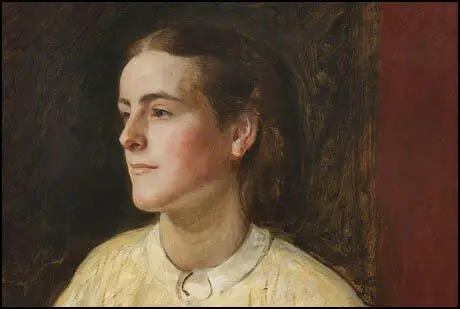
On this day in 1865 Elizabeth Garret Anderson became the first English woman to officially qualify as a doctor. Garrett had tried to study in several medical schools but they all refused to accept a woman student. Garrett therefore became a nurse at Middlesex Hospital and attended lectures that were provided for the male doctors. After complaints from male students Elizabeth was forbidden entry to the lecture hall. Garrett discovered that the Society of Apothecaries did not specify that females were banned for taking their examinations. As soon as Garrett was granted the certificate that enabled her to become a doctor, the Society of Apothecaries changed their regulations to stop other women from entering the profession in this way. With the financial support of her father, Elizabeth Garrett was able to establish a medical practice in London. Garrett was a committed feminist and in 1865 she joined with her friends Emily Davies, Barbara Bodichon, Bessie Rayner Parkes, Dorothea Beale and Francis Mary Buss to form a woman's discussion group called the Kensington Society. The following year the group organized a petition asking Parliament to grant women the vote.
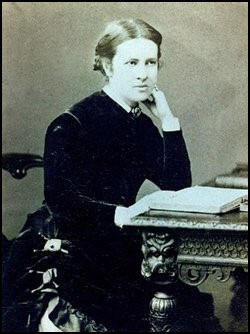
On this day in 1872 Lena Ashwell was born on a ship on the River Tyne. Her father was the captain of a training ship. When she was a child the family emigrated to Canada. After the death of her mother she returned to Europe where she studied French at Lausanne University before moving to London where she studied singing at the Royal Academy of Music.
Ashwell decided to concentrate on acting and in 1891, she appeared in The Pharisee. This was followed by appearing with Ellen Terry and Henry Irving in King Arthur, by J. Comyns Carr. She also took the lead in Mrs Dane's Defence (1900) and Leah Kleschna (1905).
In 1907 she established her own theatre known as the Kingsway. It is believed that it received financial backing from Muriel De La Warr. Ashwell married the royal obstetrician Henry Simpson in 1908.
In 1908 Lena Ashwell joined forces with Elizabeth Robins, Kitty Marion, Winifred Mayo, Sime Seruya, Edith Craig, Inez Bensusan, Ellen Terry, Lillah McCarthy, Sybil Thorndike, Lily Langtry and Nina Boucicault to establish the Actresses' Franchise League. The first meeting of the AFL took place at the Criterion Restaurant at Piccadilly Circus. The AFL was open to anyone involved in the theatrical profession and its aim was to work for women's enfranchisement by educational methods, selling suffrage literature and staging propaganda plays. The AFL neither supported nor condemned militancy. In 1908 Ashwell appeared in Diana of Dobson's, a play written by Cicely Hamilton.
On the outbreak of the First World War in August 1914 the AFL, at the instigation of Lena Ashwell, launched the Women's Theatre Camps Entertainments, which travelled round camps and hospitals. She was one of the founders of the Women's Emergency Corps and honorary treasurer of the British Women's Hospitals, and then took the Lena Ashwell Players to the Western Front.
After the war the Lena Ashwell Players continued as a company that was committed to bringing plays dealing with social issues to audiences in town halls.
Lena Ashwell died on 13th March 1957.
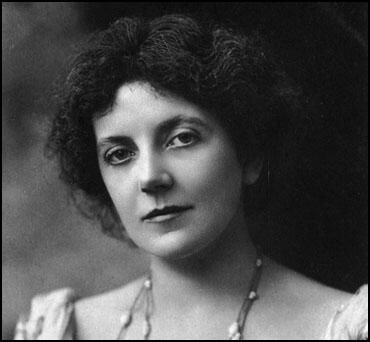
On this day in 1922 the poet Ivor Gurney was certified insane and was transferred to the City of London Mental Hospital at Dartford. On the outbreak of the First World War, Gurney volunteered for the Gloucester regiment. He was initially turned down because of his defective eyesight, but as the British Army was short of men, was allowed to join in 1915. Gurney was gassed at St. Julien on 10th September 1917. He was sent to Edinburgh War Hospital and while recovering a collection of his war poems, Severn and Somme, appeared in November 1917. After the war Gurney spent time in the Newcastle General Hospital, Lord Derby's War Hospital in Warrington and the Middlesex War Hospital in St. Albans. Gurney was finally discharged from hospital and the army on 4th October 1918. Gurney's second book of poems, War's Embers was published in May 1919. However he was unable to make a living from his writing and over the next three years worked as a farm labourer, as a pianist in a cinema and as a clerk in the Gloucester Tax Office. Gurney suffered from a severe manic depressive illness and after several failed attempts at suicide was sent to a mental asylum in Gloucester. Ivor Gurney died of bilateral pulmonary tuberculosis at the City of London Mental Hospital on 26th December, 1937.
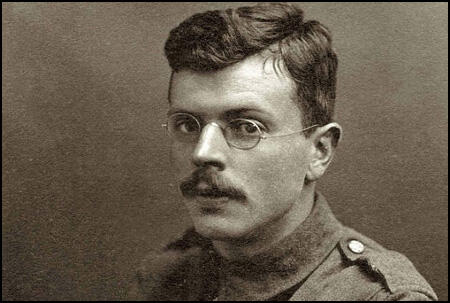
On this day in 1928 the US acknowledge Chinese government of Chiang Kai-shek. Major financial reforms were carried out and the education system and the road transport were both improved. Chiang also established the New Life Movement in 1934 which reasserted traditional Confucian values to combat communist ideas.
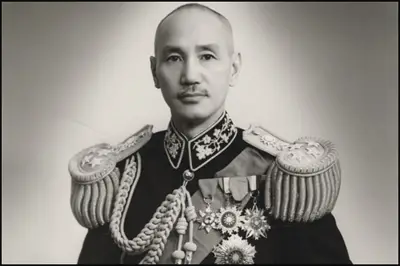
On this day in 1928 Alexander Fleming discovered the world's first antibiotic – penicillin. He was clearing out some old dishes in which he grew his cultures. On one of the mouldy dishes, he noticed that around the mould, the microbes had apparently been dissolved. He took a small sample of the mould and set it aside. He later identified it as of the penicillium family. He therefore named the anti-bacterial agent he had discovered penicillin. Fleming published his findings in 1929 but it was not until during the Second World War that Howard Florey and Ernst Chain managed to isolate and concentrate penicillin. It was not until the end of the war that the antibiotic could be mass produced and was widely used. Fleming, Florey and Chain won the Nobel Prize for Medicine in 1945.
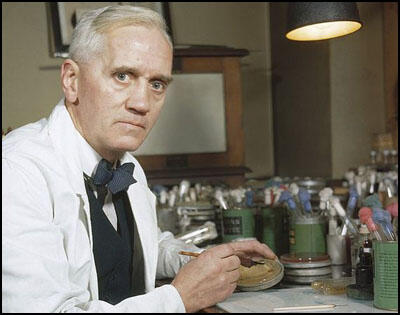
On this day in 1942 Luftwaffe bombs Stalingrad for the first time. Over the next few months the Germans flew 70,000 sorties dropping over a million bombs. Casualties during the Battle of Stalingrad are estimated to have been around 800,000, including those missing or captured. Soviet forces are estimated to have suffered 1,100,000 casualties, and approximately 40,000 civilians died.
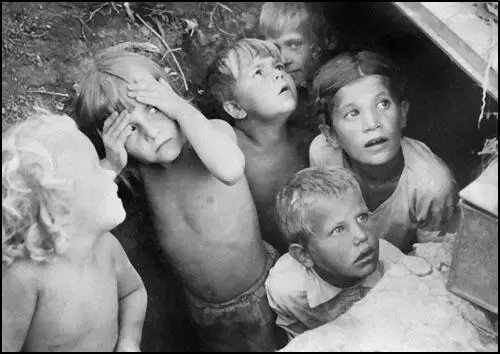
On this day in 1970 Gamal Abdel Nasser dies and is replaced by Anwar Sadat as president of Egypt.
